NDIS provider collapses right before Christmas, staff learn in brutal text message
Staff learnt the horrible news in a text message less than a week after the company denied it would go bust.
An NDIS service provider with more than 60 staff and 200 clients has collapsed after its boss claimed he had uncovered embezzlement within the business.
Last week, news.com.au reported that staff were quitting Sydney-based mental health company in droves as their pay arrived late while their superannuation had not been paid for months.
The company’s sole director, Joshua Scott, previously said the amount of money lost in the embezzlement had apparently hit the six figure mark and it involved “fraudulent practices”, including billing clients for services which weren’t rendered.
Mr Scott assured news.com.au that his business was not going under, but on Monday afternoon, staff received a text informing them that the health service was in voluntary administration.
In a company-wide text message, staff were informed there had been an “important development” as the company had gone into voluntary administration.
But bizarrely, the staff were told to opt in with a ‘YES’ reponse to the message if they wanted to “seamless(ly)” carry on their employment at a new entity, free from debt.
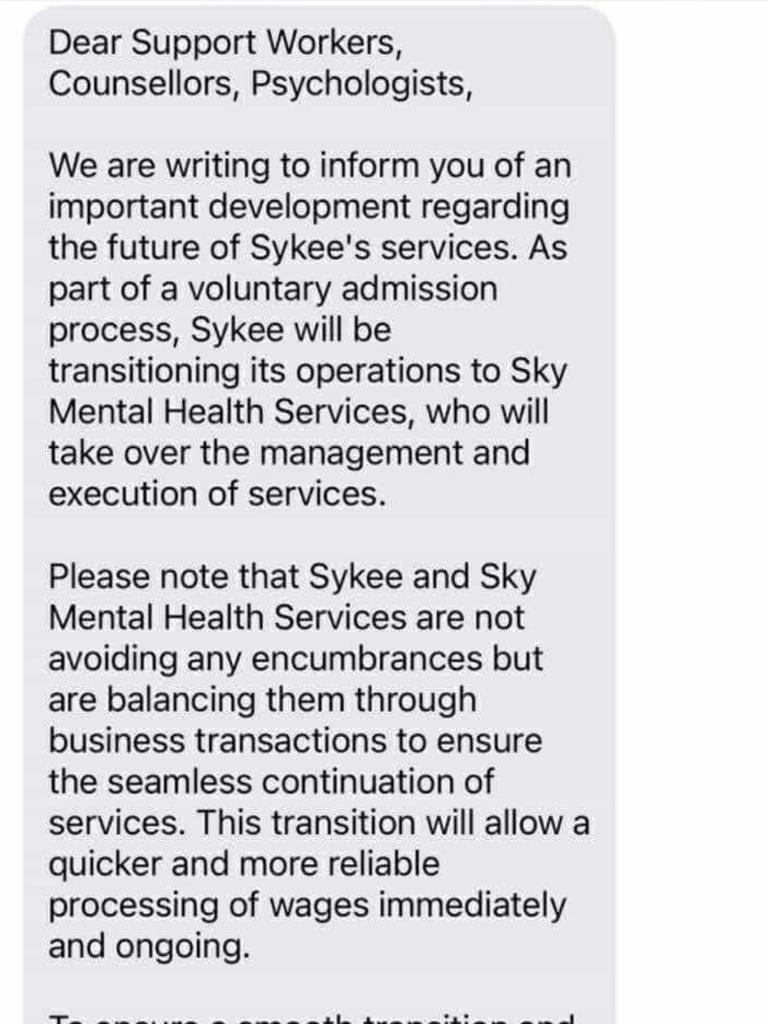
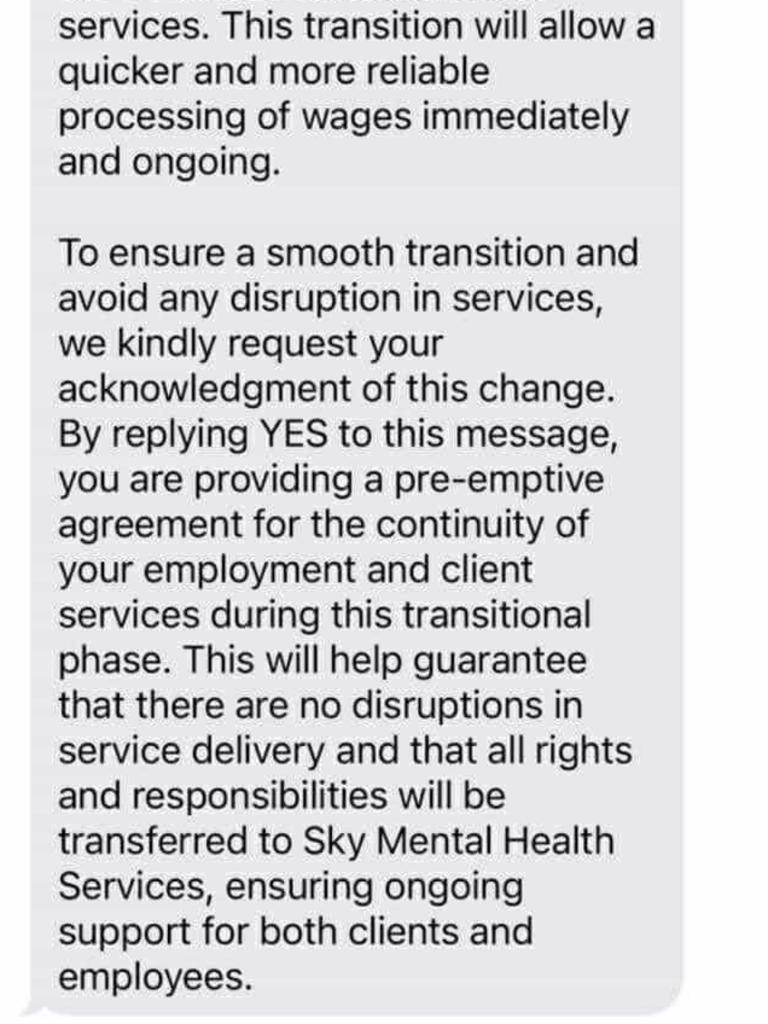
“Sykee will be transitioning its operations to Sky Mental Health Services, who will take over the management and execution of services,” the text read.
It came with a caveat, addressing some concerns of staff.
“Please note that Sykee and Sky Mental Health Services are not avoiding any encumbrances but are balancing them through business transactions to ensure the seamless continuation of service.”
It said this would ensure “more reliable” payment of wages.
This would seem to indicate that the previous business, Sykee Pty Ltd, might not be trading through its administration.
Sykee Pty Ltd’s administration is not yet registered on ASIC.
News.com.au could not find a Sky Mental Health Services registered to ASIC.
News.com.au contacted Mr Scott and Sykee for comment. They did not immediately respond by the time of publication.
Do you know more/Have a similar story? Get in touch | alex.turner-cohen@news.com.au
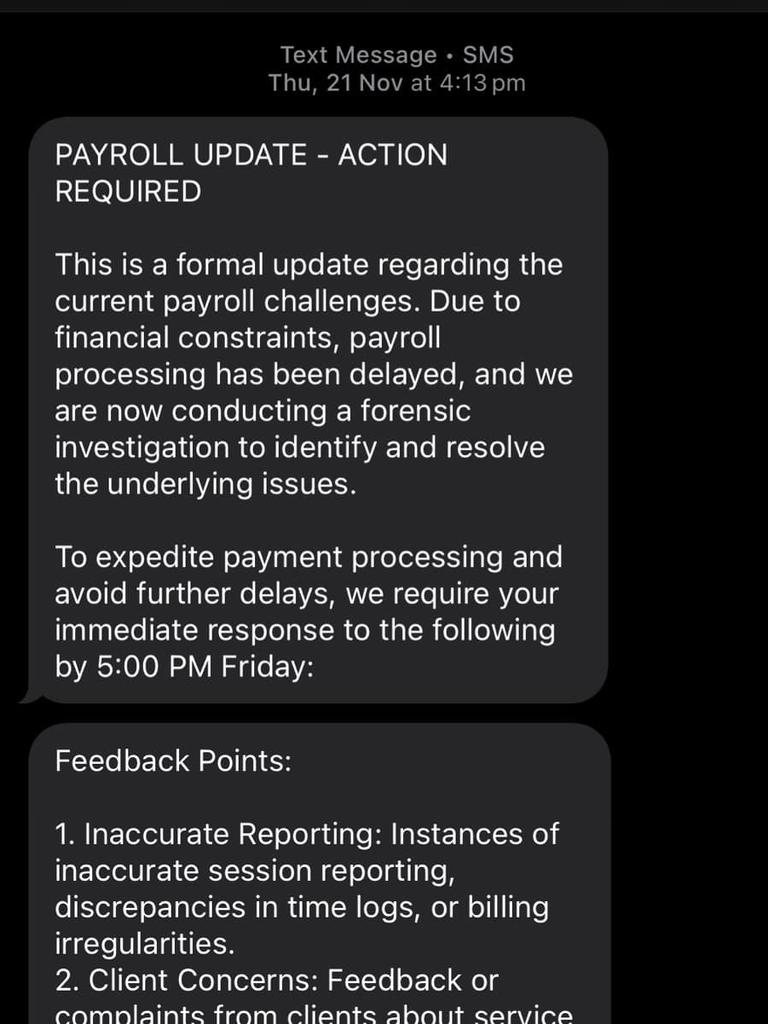
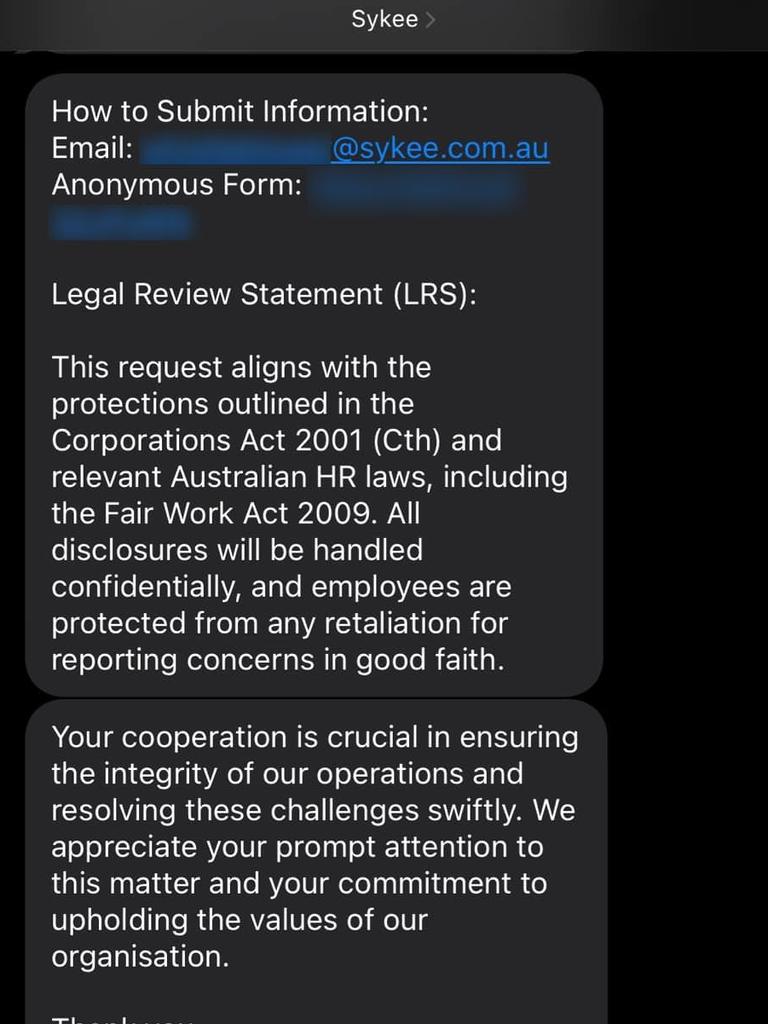
Sykee, a Sydney based NDIS mental health service provider which opened three years ago, employs around 60 support workers and a further 10 head office staff.
But since July, the business hasn’t paid all staff their super and also hasn’t paid them all their wages on time.
Sykee previously admitted to being plagued by “financial constraints” in a text message sent at the end of last month.
“There has been some issues,” Mr Scott acknowledged to news.com.au in a phone call two weeks ago.
“I’m only making payments to those who are making the business run prior to the ones making the business work.”
By this, he means he’s paying those essential to keeping money coming in, like the support workers, as opposed to creditors and other employees.
He said he had discovered “some sort of weird embezzlement” going on at his company, which has caused cash flow to be strangled. “The scale of it is prolific,” he added.
Mr Scott encouraged staff to blow the whistle if they knew anything about “operational misconduct”, including “fraudulent practices”, inaccurate reporting of shifts, billing irregularities and unexpected charges to clients.
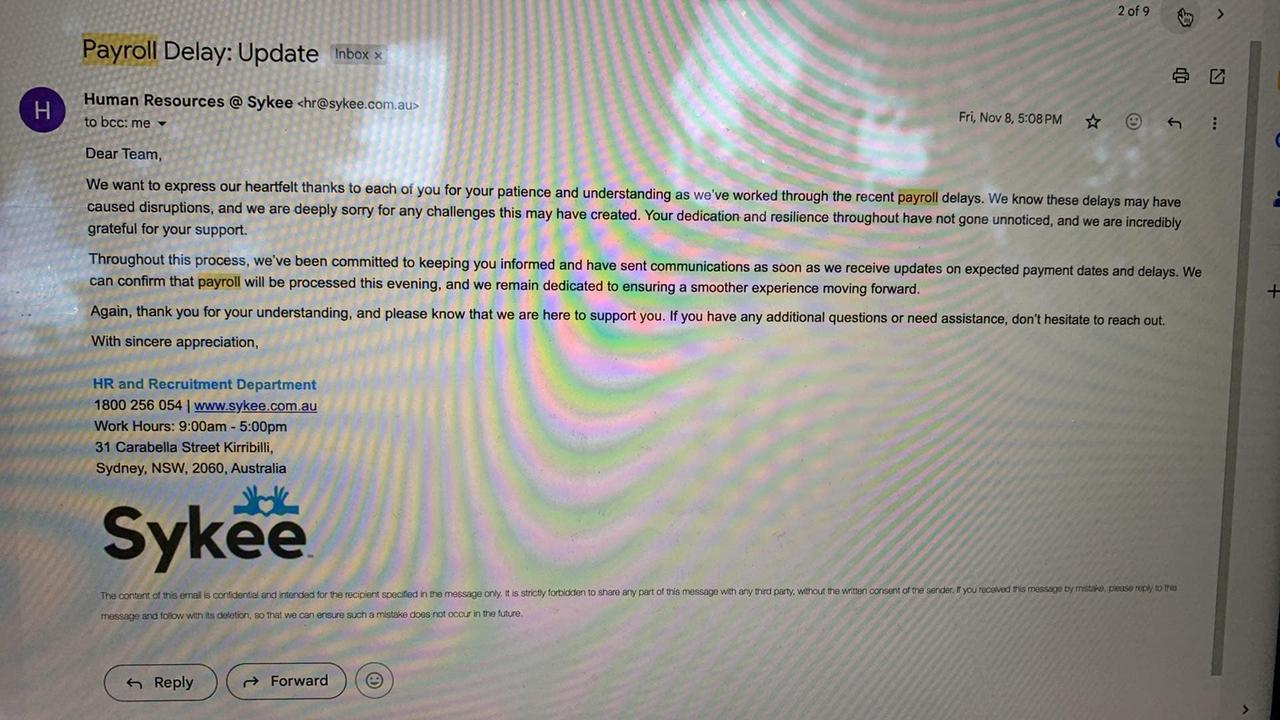
Staff have told news.com.au they had fallen behind on their rent and mortgages while the business died before their eyes.
In one extreme case, according to other staff members, a support worker was unable to attend his shift as he didn’t have enough money to afford the fuel to get there.
Fiona*, 25, who did not want to share her last name, said the strain from receiving her pay late had been “overwhelming”.
“I’ve been struggling to keep up with my mortgage payments and other bills, resulting in late fees that only deepen the financial burden,” Fiona told news.com.au.
More Coverage
“With the holidays approaching, it’s heartbreaking to know I won’t be able to visit family members this year due to these financial constraints.”
Pay arrived late in February and the company blamed it on a glitch. But a few months later, the pay issues started to become more frequent. At first the company said it was an IT issue, then they said the problem arose because they had switched banks. Yet, the problem has persisted.
alex.turner-cohen@news.com.au






